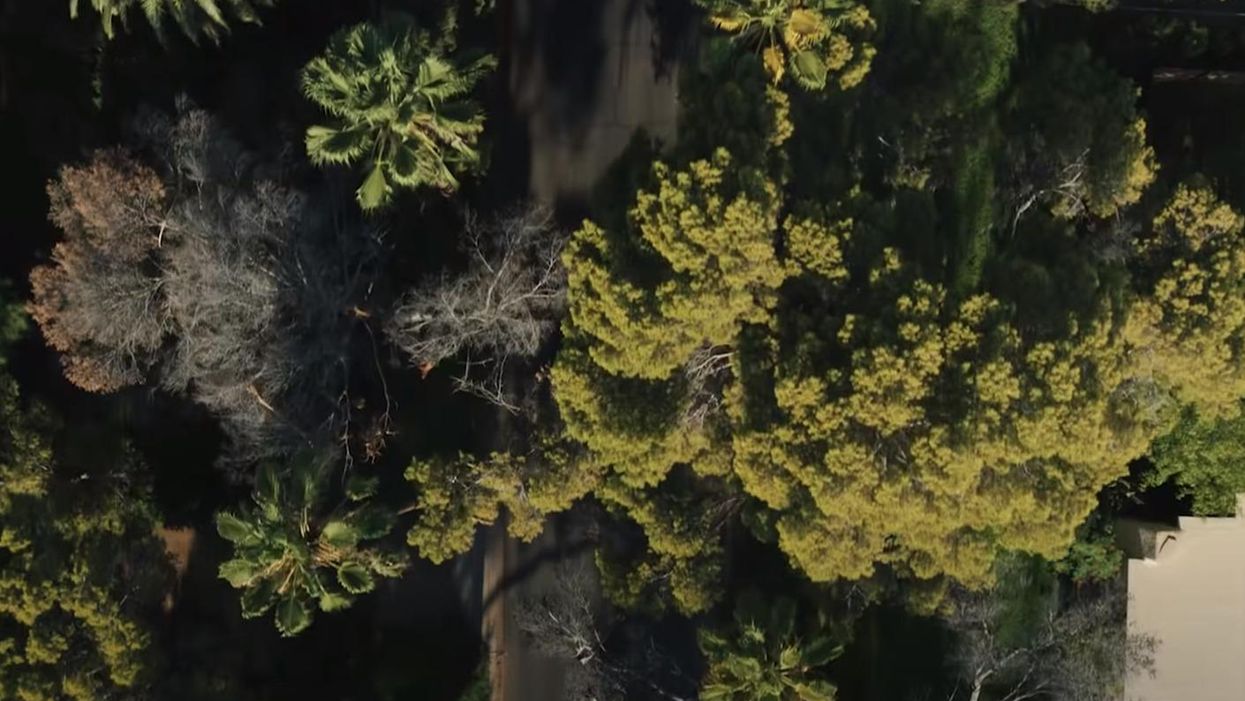Humanity Can Beat The Heat -- But Our Cities Need Millions More Trees
Sitting in the AC, I look out the window and smile as dogs being walked collapse under the shade of my Norway maple. And who could blame them? Would any of us want to be out in this harsh heat wearing a fur coat?
This has been one of the few times I've given thanks I'm not in Paris. That's because, though much of Europe is baking, Paris is suffering even more than cities like London, where the temperature exceeded an unheard-of 100 degrees Fahrenheit.
Climate change is happening all over, but why is Paris doing worse than elsewhere? Not enough trees.
Trees provide shade, which cools the pavement below. They also increase water evaporation, another factor moderating the heat.
The concrete, metal and asphalt of cities soak up heat and radiate it back. Without much green to offset some of it, Paris has become a case study in the "urban heat islands." That is, parts of the city were found to be nearly 20 degrees hotter than neighboring areas.
The favorite French word for the heat wave is "canicule." Translation: "dog days."
Noting that a green umbrella helps lower temperatures, MIT's Senseable City Lab has put together a "Treepedia" that compares tree coverage in a number of cities. The researchers based the calculations behind their "green view index" on Google Street View panoramas.
Paris came in near bottom. It's tree canopy covered only 8.8% of the city. In contrast, London's shaded 12.7%. In Los Angeles, trees sheltered 15.2% of the city from the sun. There should be little surprise that Seattle's tree coverage was an admirable 20%.
Interestingly, New York City's "green view index" came in at a respectable 13.5%. Gotham is not all "concrete canyons," as lore would have it.
Complicating cities' efforts to plant more trees is the competition for limited space. For example, Athens has long been a hot, paved city. But proposals there to plant trees must fight demand for parking spaces. One must choose.
The heat problem has economic implications. By 2050, "urban heat stress" could cut a person's ability to work by about 20% in the hot months, according to a United Nations report by leading climate experts. Overheated human beings are more likely to suffer exhaustion, dizziness and even organ failure.
Trees, of course, play a big-picture role in the global warming crisis. Wherever they are located, trees store the carbon dioxide gases that warm the earth's atmosphere. They also release water vapor that helps form clouds. Thus, the massive deforestation in the tropics is harming quality of life in far-distant places, including northern urban centers.
The science here is not simple, though. Some effects of climate change could actually moderate the heat trend. As the Arctic melts, Science magazine reports, trees are growing in regions where ice predominated. In parts of Alaska where there was only moss and lichen, spruce trees are rising.
The bare tundra of northern Siberia is giving way to bushes and willows. Such a development, if it continues, would create no small forest. The Nenets autonomous district alone is the size of Florida.
In arid regions with milder climates, meanwhile, increased concentrations of carbon enable plants to use water more efficiently and thrive in drier soils. Carbon dioxide also acts as a fertilizer, promoting the growth of wood and leaves.
Certainly, multibillion-dollar things can be done to insulate buildings and retrofit the urban infrastructure to absorb less heat. But trees cost so little, do not require new technology and look nice, too.
Trees don't just stand there. They can help beat the heat and may end up saving civilization. Dogs already know this.
Follow Froma Harrop on Twitter @FromaHarrop. She can be reached at fharrop@gmail.com. To find out more about Froma Harrop and read features by other Creators writers and cartoonists, visit the Creators webpage at www.creators.com.
Reprinted with permission from Creators.



